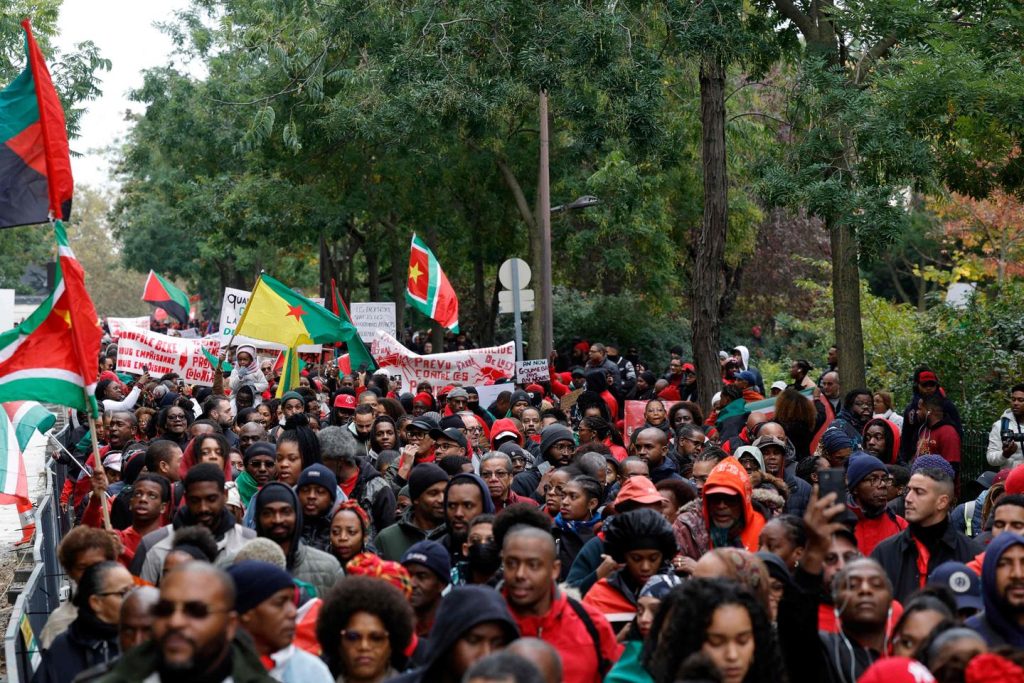Thousands of people from overseas regions, dressed in red, gathered in Paris on November 3, 2024, to protest against the high cost of living overseas. The protesters, representing various Antillean and Kanak associations, gathered in a festive atmosphere to march from Place Denfert-Rochereau to the Ministry of Overseas Territories. Banners reading “Criminal monopoly,” “Insatiable Békés,” and “Respect us” could be seen, as the crowd chanted “No to the high cost of living!” waving flags from Martinique, Guadeloupe, and New Caledonia.
Louis-Philippe Mars, vice president of the Ultramarins Doubout association, described the situation in overseas territories as often overlooked by mainland France, emphasizing the need to raise awareness among the French population. The protesters demanded territorial continuity and price alignment, hoping for a change to come from the demonstration. The high cost of living in overseas territories has been a long-standing issue that has not been adequately addressed, Mars explained.
Within the protest, individuals like Corry Diomar, a 31-year-old father of four with family in the Antilles, expressed frustration over the significantly higher prices for basic goods in overseas territories. The cost of a shopping cart at Carrefour can be two to three times more expensive there, making it difficult for families to afford essential items like cereals. Celeste, a 32-year-old social worker from New Caledonia, highlighted similar challenges on the “Caillou,” where everything is more expensive, leading to difficulties in accessing food, healthcare, and education.
Rodrigue Petitot, a prominent figure in the fight against the high cost of living in Martinique, emphasized the importance of solidarity between overseas communities in their struggle for fair prices. Petitot stressed the need for equal access to essential goods in all parts of France, regardless of geographical location. The protest aimed to draw attention to the struggles faced by residents of overseas territories and to call for concrete measures to address the disparities in prices and access to goods and services.
The protesters’ voices resonated with others like Sandrine Rosette, a 42-year-old business owner with family in Martinique, who criticized the profit-driven practices of the big distributors, arguing that they were benefiting at the expense of the local population. The high cost of living in overseas territories has worsened in recent years, leading to increased financial strain for residents who are already facing economic challenges. The protesters called for action to address these inequalities and to ensure fair prices for essential items in all regions of France.
Overall, the protest against the high cost of living in overseas territories in Paris highlighted the struggles faced by residents of these regions, who often have to pay significantly more for everyday goods compared to mainland France. The demonstration sought to raise awareness among the broader French population and to call for changes that would alleviate the financial burden on families in overseas territories. By coming together in solidarity, the protesters aimed to push for concrete measures to address the root causes of these disparities and to ensure fair access to essential goods and services for all residents of France, regardless of their geographical location.


